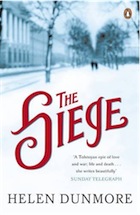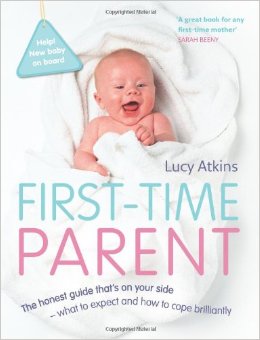
Sometimes, our reading choices benefit from external guidance.
I began reading ‘The Siege’ out of a vague sense of obligation; I ended it with a sense of gratitude – to the author, who made what could have been Yet Another War Story beautiful and genuinely moving, and to the acquaintance who insisted I would enjoy this book.
What’s it about?
In September 1941, Hitler ordered the German forces to surround Leningrad and have it ‘wiped from the face of the earth’. This chilling directive opens a powerful story that focuses primarily on the survival of a few individuals living in Leningrad at the time of the bombardment. Forced to burn books to avoid frostbite and boil shoe-leather to stave off starvation, Dunmore’s characters struggle not just to exist, but to want to continue existing.
What’s it like?
Utterly convincing. Brave Anna forms the novel’s emotional core as she fights to keep herself, her young brother, Kolya, and increasingly vulnerable father, Mikhail, from dying. She is soon joined in this endeavour by a handsome young doctor, Andrei, and her father’s old flame, Marina.
I was initially concerned that the ensuing romance arcs would obscure what I considered to be the ‘true’ focus of the novel – the brutal nature of life in Leningrad at this time – but in fact Dunmore deftly balances these threads, revealing how hunger and fierce cold can conspire to crush even the most loving souls.
Dunmore’s characters struggle not just to exist, but to want to continue existing.
Although Anna’s family remains the core focus, other stories are woven in as their lives cross Anna’s: the tough worker who becomes a prostitute while her elderly mother sleeps in the next room; the pretty young thing who is killed by a chance fall of bricks; the young mother struggling to feed a newborn baby while her husband is away trying to save the Motherland. In this way, Dunmore creates a rich tapestry of experiences within the dying city.
Though most of the novel is written in the third person, with a close focus on a particular character’s experiences, Dunmore often uses direct address to powerful effect:
‘What are days? You wake hours before it’s light, from hunger. Hunger has burrowed deep into your stomach and is eating away at you. You turn, moaning, trying to dislodge it. You taste the foulness of your breath.’
‘What are days? You wake hours before it’s light, from hunger. Hunger has burrowed deep into your stomach and is eating away at you. You turn, moaning, trying to dislodge it. You taste the foulness of your breath.’
Once again, this evocation of wider, shared experience helps the story feel convincing and genuinely moving. I am very rarely moved to tears by anything in a book or film, but one episode in ‘The Siege’ did make me cry. Despite the necessarily sad nature of much of the plot and narration, the blurb claims that this novel is also ‘a profoundly moving celebration of love, life and survival’. So it is – for those who survive.
Final thoughts
‘The Siege’ is a well-written, genuinely moving and thoroughly convincing account of life in Leningrad during the bombardment. I liked that the book focuses on civilians and their war effort, rather than following the men in the trenches. I also liked the fact that love doesn’t conquer all – though it does help. I plan to read Dunmore’s follow-up, ‘The Betrayal’, to find out what happens to the surviving characters, but this is because I enjoyed Dunmore’s written style and easy embedding of history into the story, rather than feeling a ‘need to know’; this novel has a perfectly satisfactory ending and feels quite self-contained. Recommended.


